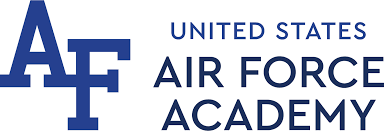An Interdisciplinary Approach to Mentoring, Reflection, and Student Engagement: Initial Findings from a Liberal Arts Pilot Study
DOI:
https://doi.org/10.58315/jcld.v10.274Keywords:
Peer Mentoring, Pedagogy, Program InnovationAbstract
A Research Working Group conducted as part of an American Council on Education (ACE) Learning Laboratory (2022) concluded that “mentoring relationships are fundamentally developmental and learner-centered.” These relationships are “distinct from other meaningful relationships in that they: (1) Promote academic, social, personal, cultural, and career-focused learning and development in intentional, sustained, and integrative ways, (2) Evolve over time, becoming more reciprocal and mutually beneficial, [and] (3) Are individualized, attending to mentees’ developing strengths and shifting needs, mentors’ expertise, and all members’ identities.” In addition, application of Gallup’s “Big Six” College Experiences Linked to Life Preparedness further supports these findings. This pilot project, a collaboration between the School of Business and School of Education at a selective Liberal Arts Institution, presents the initial findings from the Instructor of Record and Peer Mentors in BUS1110: Gateway to Business courses. These initial findings might be utilized by readers as a way of augmenting and/or enhancing classroom learning applicable in their own courses with the goal of preparing students for what Ted Mitchell, President, ACE in Weaver et al. (2023), refers to as “a world of uncertainty, imperfect information,” at times, “unrelenting pressure…” The application of “real world insights” enhances students’ intellectual development and classroom pedagogical approaches.
Downloads
References
American Council on Education. (2022, February 18). Mentoring for learner success: Final report of the American Council on Education’s Learner Success Laboratory. https://eloncdn.blob.core.windows.net/eu3/sites/1480/2022/07/ACE-Elon-LSL-Final-Report-February-202281.pdf
Bain, K. (2004). What the best college teachers do. Harvard University Press.
Gabelnick, F., MacGregor, J., Matthews, R. S., & Smith, B. L. (1990). Learning communities: Creating connections among students, faculty, and disciplines. Jossey-Bass, Inc.
Goodrich, A. (2021). Online peer mentoring and remote learning. Music Education Research, 23(2), 256–269. https://doi.org/10.1080/14613808.2021.1898575
Keeling, R., Underhile, R., Wall, A. F., & Dungy, G. J. (2008). Assessment reconsidered: Institutional effectiveness for student success. International Center for Student Success and Institutional Accountability.
Seymour, S., & Lopez, S. (2015). “Big Six” college experiences linked to life preparedness. Gallup.
Weaver, G. C., Rabbitt, K. M., Summers, S. W., Phillips, R., Hottenstein, K. N., & Cole, J. M. (2023). Acute crisis leadership in higher education: Lessons from the pandemic. Routledge.
Published
How to Cite
License
Copyright (c) 2023 Jim Fatzinger

This work is licensed under a Creative Commons Attribution 4.0 International License.
Authors contributing to Journal of Character & Leadership Development agree to publish their articles under the terms of the Creative Commons CC-BY 4.0 License. Authors retain copyright of their work, with first publication rights granted to the JCLD.



